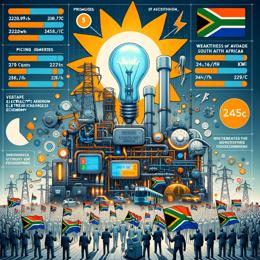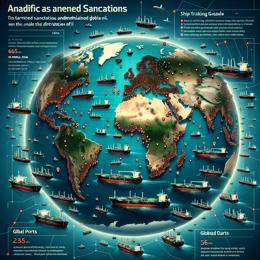Image created by AI
Russia Implements Six-Month Export Ban on Petrol to Stabilize Domestic Markets
In response to increased local demand and recent attacks on refineries, Russia has announced a six-month ban on petrol exports set to commence from March 1, as reported by the state news agency Tass. The decision, approved by Prime Minister Mikhail Mishustin, is a strategic move to prevent potential shortages and control the surging prices within the domestic market.
This embargo follows a similar restriction from last year which sought to tackle analogous issues. Deputy Prime Minister Alexander Novak, who recommended this latest measure in a letter dated February 21, emphasized the upcoming rise in seasonal fuel demand and the need for interventions to stabilize the domestic market prices.
Notably, the ban excludes countries part of the Eurasian Economic Union (EAEU) such as Armenia, Belarus, Kazakhstan, and Kyrgyzstan, as well as Mongolia, Uzbekistan, and the breakaway regions of Georgia — Abkhazia and South Ossetia. These regions continue to maintain special trade relations with Russia, making them immune to the restrictions.
The precedent for such a ban was set last September, preceding the winter season when energy consumption typically spikes in Russia. Though initially apart from the ban, Belarus, Kazakhstan, Armenia, and Kyrgyzstan saw the restrictions eased by November.
However, this year’s moratorium is more prolonged, extending well into the warmer months. Analysts suggest that the strategy might also be influenced by the presidential elections scheduled for March 15-17, as reigning in fuel prices could be pivotal in the current government's economic policy.
Moreover, the halt in exports is expected to ensure necessary maintenance and repairs for the refineries, some of which have been compromised due to the ongoing conflict in Ukraine. Russia had already curtailed petrol exports to non-Commonwealth of Independent States members last month because of inflicted damages on its energy infrastructure.
In terms of production, Russia recorded a petrol output of 43.9 million tonnes in 2023, of which approximately 5.76 million tonnes were exported. African countries such as Nigeria, Libya, and Tunisia, along with the United Arab Emirates, are among the primary importers of Russian petrol.
Amid fluctuating global oil prices and market dynamics, Russia is concurrently aligning with OPEC+ decisions by voluntarily reducing its oil and fuel exports by 500,000 barrels per day in the first quarter of the year. This move is an effort to bolster market prices in a time marked by geopolitical tensions and economic volatility.










